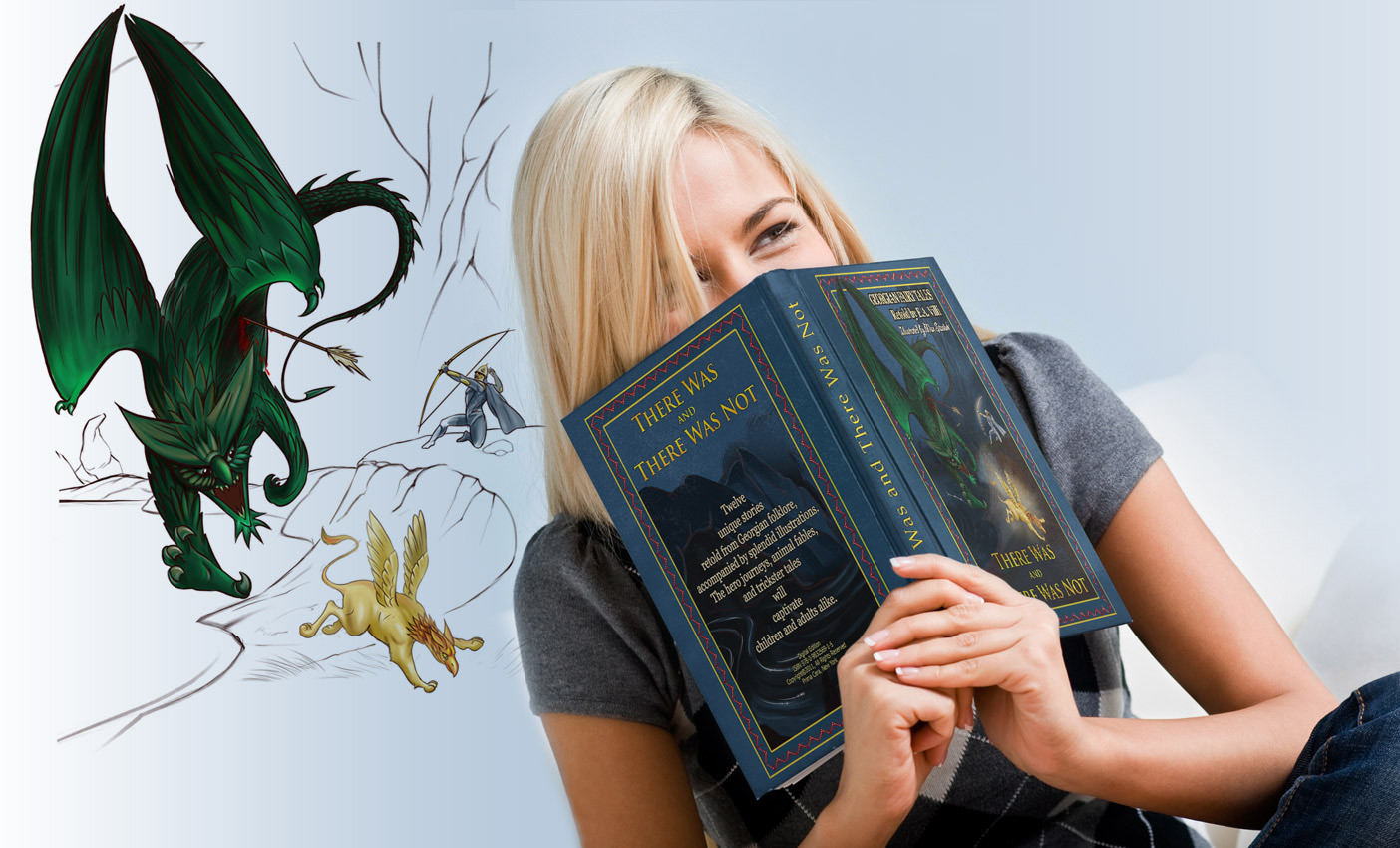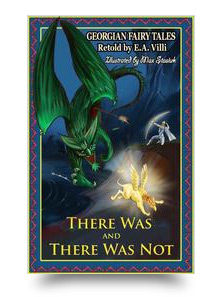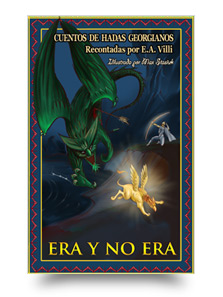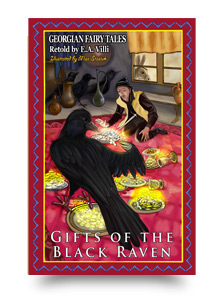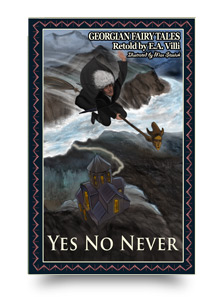It started with my first book, a gift from my parents. Although I was less than five years old, I remember that evening as if it happened yesterday. We were living in Georgia then, it was New Year's Eve, and we were expecting guests. My mom cooked all day, my sister helped. My dad moved the heavy furniture out of the way. A large dining table was set for the grown-ups, and my smaller tea-time table was placed at one end. I set the plates for the kids myself. When all was ready, and after I dressed in my best clothes, my father suddenly disappeared. Read more
The front doorbell rang, and my mother told me to let in the caller. Imagine my astonishment when Santa Clause stepped into our corridor, took me by the hand and led me to the living room. His beard was white and fluffy, as if it were made of cotton. He was wearing his gray sheepskin coat inside out, so the furry side was on the outside. In place of real snow, his hat and shoulders were covered by wisps of silver sequence.
I did not know this was my dad, I thought the stranger was truly Santa. I shyly thanked him for his gifts-a book of Georgian fairy tales and a toy train with rails in a big box. Then, in a thick voice, so I would not recognize him, Santa said he had other children to visit, placed the book and the train kit under our decorated fern tree, and left.
Some minutes later, my father came into the living room, his blue eyes shining mischievously, and what looked like bits of cotton clinging to his neck and ears. While he began setting up the toy train beneath the tree, (he loved to help me with mechanical toys), I opened my first book. Mom said I should put it away since our guests just started to arrive.
The next evening, my mother began reading the book to me. I became fascinated with the stories and what the heroes had done, what the animals said, for in my mind's eye, I could imagine all that transpired, down to what everyone was wearing. No doubt, it was then that I fell in love with fairy tales.
Magical stories motivated me to begin reading on my own. I could not wait for my mother to read them to me, and one tale before bedtime just wasn't enough. There were a hundred stories in the book, so before we reached the twentieth, I mastered the alphabet with mom's help. Now, nothing could stop me from reading as much as I wanted. There was plenty of time between play. Back then, we only had three TV channels. Cartoons were rarely shown, there was no such thing as Nickelodeon, and video games would not be invented for another decade.
It was during those chilly January evenings when my love of the fairy tale genre took hold of my heart. I wanted to read them, and I wanted to remember them, so I could tell them to my friends. I became a storyteller without being aware of it. After I finished all hundred tales, the best gift my parents could give me was a new book of fairy tales. The more remote the culture, the more fascinating I found it. My mom almost never refused me. Visiting a bookstore was a pleasurable occasion, and an excellent incentive for me to be on my best behavior. I am quite proud of the fact that I still have every single volume my parents gave me.
What is Georgia like?
It is a country that has always been special to me because it is the place of my earliest memories and warmest recollections. While it is tempting to begin citing the many interesting historical facts about Georgia, one would need to write a library of very thick books to justly depict it in all its beauty, complexity, and turbulent history. I am not a historian, I can only speak about Georgia in a way that is deeply personal.
Read more
Georgia’s history and traditions go back many epochs, and, I am happy to say, still continue to grow and evolve. It is a country of many nations, peoples, and languages. It is by far one of the most picturesque places in the world. Nature has generously endowed Georgia with a long spine of high mountains, crowned by snowy peaks, much like the fluffy Georgian sheepskin hats. Its mountain air is crystal clear, its forests thick, its rivers many, and its animals and birds magnificent and varied. Its fruits and vegetables are delicious, and its rich Mediterranean cuisine boasts tantalizing spices and seasonings. A separate homage must be paid to Georgian wine, which is now exported all over the world.
Indeed, it would be impossible to list all the accomplishments of the Georgian people on this page. Suffice it to say that I consider myself fortunate to have spent my early years in that beautiful country, where I lived among its people, experienced firsthand its sacred custom of hospitality, and learned its stories. These images I will carry with me throughout my life.
Included in the published volumes are some of my favorite tales. It is my sincere hope that these stories will speak to you as magical representations of the culture and ideals of the ancient Georgian people.
Why did I publish Georgian fairy tales?
Someone, I do not recall who, once said, "In life whatever you do for yourself dies with you, but whatever you do for others lives on."
The three books of Georgian tales I published have a personal significance for me because they were the first volume of fairy tales my parents gave me. Read more
The inspiration for retelling Georgian fairy tales in English first occurred to me when I was eleven. At that time, I was just beginning to be proficient in English and to appreciate the beauty of the language. However, it took me years to complete the project. I would start and stop, fill many pages and rip them up, chucking everything, then I would start again. It was a slow process, with long breaks in between. I was too busy with school, friends, college, and career. But one day, after surgery, when I had to sit still, I gathered all the materials in front of me again and began to treat my earlier attempts, as a serious project.
Once I finalized the text in English, I became curious to see how the tails would sound in Spanish, which I started to learn years ago. The stories turned out better than expected, and I could not be more pleased. Working on my favorite stories as an adult, I discovered that they have the same charm for me now as when I first heard them on my mother’s knee.

